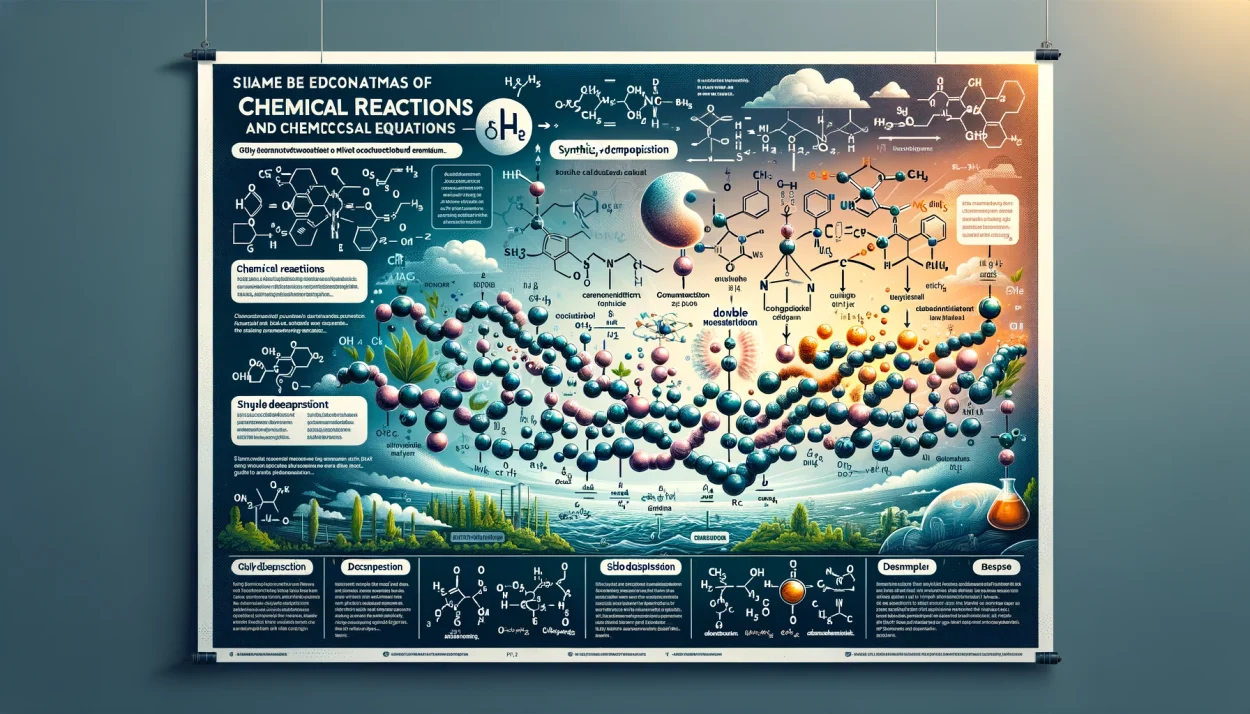
Chemical Reactions and Equations: Unveiling the Secrets of Chemical Changes

Introduction:
Chemical reactions are the processes by which substances interact to form new substances with different properties. Understanding these reactions and the equations that represent them is fundamental to the study of chemistry. For Class 10 students, mastering this topic opens the door to exploring the vast world of chemical sciences.
Understanding Chemical Reactions:
A chemical reaction involves the rearrangement of atoms of the same or different elements to form new chemical substances. These processes are governed by the laws of chemical combination and can be categorized into various types, including synthesis, decomposition, single displacement, and double displacement reactions.
Balancing Chemical Equations:
The principle of conservation of mass states that mass can neither be created nor destroyed in a chemical reaction. This principle necessitates the balancing of chemical equations, ensuring that the number of atoms of each element is the same on both sides of the equation.
Types of Chemical Reactions:
- Synthesis Reactions: Two or more substances combine to form a single product.
- Decomposition Reactions: A single reactant breaks down into two or more products.
- Single Displacement Reactions: An element displaces another in a compound.
- Double Displacement Reactions: The ions of two compounds exchange places in an aqueous solution to form two new compounds.
Applications and Implications:
Chemical reactions are not just academic concepts but have practical applications in industries, environmental science, medicine, and everyday life. From the combustion engine that powers vehicles to the metabolic reactions in our bodies, chemical reactions influence every aspect of our existence.
Conclusion:
Understanding chemical reactions and equations is crucial for Class 10 students, not only for their academic success but also for fostering a deeper appreciation of the world around them. This knowledge serves as a foundation for future studies in chemistry and related fields.